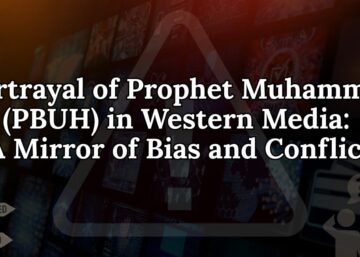Muharram, the first month of the Islamic lunar calendar, holds deep spiritual and historical importance in Islam. As one of the four sacred months in which warfare is prohibited, its arrival marks the beginning of the Islamic New Year with an atmosphere of reverence, reflection, and renewal.
The Divine Wisdom Behind the Lunar Calendar
Allah (SWT) ordained the lunar calendar through the observable phases of the moon, enabling humans to organize their lives in alignment with divine rhythms. As mentioned in the Quran:
“It is He who made the sun a shining light and the moon a derived light and determined for it phases – that you may know the number of years and account [of time]…”
(Surah Yunus, 10:5)
Each Islamic month, including Muharram, offers a distinct opportunity for spiritual growth and historical reflection.
Key Incidents in Muharram
The Tragedy of Karbala (10th Muharram – Ashura)
The martyrdom of Imam Husayn ibn Ali (RA), the beloved grandson of the Prophet Muhammad (PBUH), is the most defining event of Muharram. In 680 CE, Imam Husayn and his small band of loyal companions stood firm against the oppressive Umayyad regime of Yazid, despite extreme hardship and eventual martyrdom. Their moral stand for justice, truth, and integrity remains a universal symbol of resistance against tyranny and is especially commemorated by Shia Muslims during Ashura.
Other Historical Events on Ashura
Ashura also marks other significant events in Islamic history:
- The salvation of Prophet Musa (A.S) and his followers from Pharaoh.
- The safe landing of Prophet Nuh’s (A.S) Ark.
- The repentance and forgiveness of Prophet Adam (A.S).
- The release of Prophet Yusuf (A.S) from prison.
These events underscore Ashura as a day of divine mercy, deliverance, and reaffirmation of faith.
Additional Notable Dates in Muharram
1st Muharram – Death of Caliph Umar bin Khattab (R.A)
The 1st of Muharram is not only the Islamic New Year but also a date shadowed by the martyrdom of Caliph Umar bin Khattab (R.A), one of the greatest companions of the Prophet Muhammad (PBUH) and the second caliph of Islam. Known for his uncompromising sense of justice, administrative brilliance, and humility, Umar (R.A) left a monumental legacy. He was the architect of many institutions in the Islamic state, such as the public treasury (Bayt al-Mal), judiciary systems, and administrative divisions, which set a foundation for Islamic governance for centuries.
His assassination in 644 CE during Fajr prayer by a Persian slave was a major event that deeply affected the Muslim community. Despite the tragedy, Umar’s death on this date immortalized his legacy as a righteous leader who placed public welfare and the Islamic ethos above personal gain. His leadership style is still cited as a model for ethical governance in Islamic political philosophy.
2nd Muharram: Arrival of Imam Hussain (R.A) in Karbala
On the 2nd of Muharram, Imam Hussain ibn Ali (R.A), the grandson of the Prophet (PBUH), arrived in the plains of Karbala along with his family and companions. This day marks the beginning of the final chapter of his life, where the seeds of sacrifice were fully sown. Knowing the risks and aware of the inevitability of martyrdom, Imam Hussain (R.A) chose moral and spiritual principles over political compromise.
The arrival at Karbala was strategic but also divinely destined. It was here that the values of patience, resistance, and unwavering faith would be demonstrated in their purest forms. For Muslims, this moment is a powerful symbol of how standing for truth, even in the face of certain death, is not only commendable but necessary.
7th Muharram: Water Blockade by Yazid’s Army
By the 7th of Muharram, the cruelty of Yazid’s army escalated when they enforced a complete blockade on the Euphrates River, cutting off access to water for Imam Hussain (R.A), his family, and his companions. This act of inhumanity has been remembered for centuries as a dark stain on the Umayyad regime.
Despite intense thirst and dehydration, Hussain’s camp maintained its dignity and faith. The image of a parched child crying for water or a warrior offering his last sip to another evokes deep emotional and spiritual resonance. This event teaches the lesson of spiritual endurance: that even physical deprivation cannot weaken a heart rooted in faith.
The blockade wasn’t merely a military strategy; it was a symbol of the larger oppression the Prophet’s family faced. It underscores how tyrants may use every tool of suffering, but divine truth and resilience always shine brighter.
Spiritual Practices and Reflections
One of the most recommended acts of worship during Muharram is fasting on the 10th day, known as Ashura. This practice has roots that stretch deep into Islamic history. The Prophet Muhammad (PBUH) himself observed the fast of Ashura even before the command of Ramadan fasting was revealed. When He (PBUH) arrived in Madinah, he noticed the Jews fasting on this day in gratitude for the release of Prophet Musa (A.S) and the Children of Israel from Pharaoh’s tyranny. The Prophet Muhammad (PBUH) affirmed this act and encouraged Muslims to fast on Ashura, stating, “I am closer to Musa than they are” and recommended fasting on the 9th and 10th or the 10th and 11th to distinguish from other traditions.
Conclusion
Muharram is not just about remembering; it’s about acting. Many use this month as a time to increase their charitable activities, feed the hungry, and support community projects. These acts of kindness are rooted in the teachings of Ahl-e-Bayt, who emphasized selflessness and caring for the less fortunate, even in the face of dire circumstances.
Hazrat Imam Hussain’s refusal to pledge allegiance to Yazid was more than a political stance; it was a spiritual and ethical decision. In every profession, every community, every relationship, the lessons of Karbala invite believers to uphold truth over convenience, courage over cowardice, and faith over fear. Reflecting on Karbala urges Muslims to look inward and ask hard questions: Am I standing for justice in my own life? Do I remain silent in the face of wrongdoing? Am I upholding the dignity of others as Hussain (R.A) did?
As the new Islamic year begins, let Muharram serve as a spiritual compass. Let it push us to stand taller, speak louder, love deeper, and live better. This sacred month calls not only for memory but for movement toward truth, justice, and a life that reflects the radiant legacy of the Prophet’s family.



